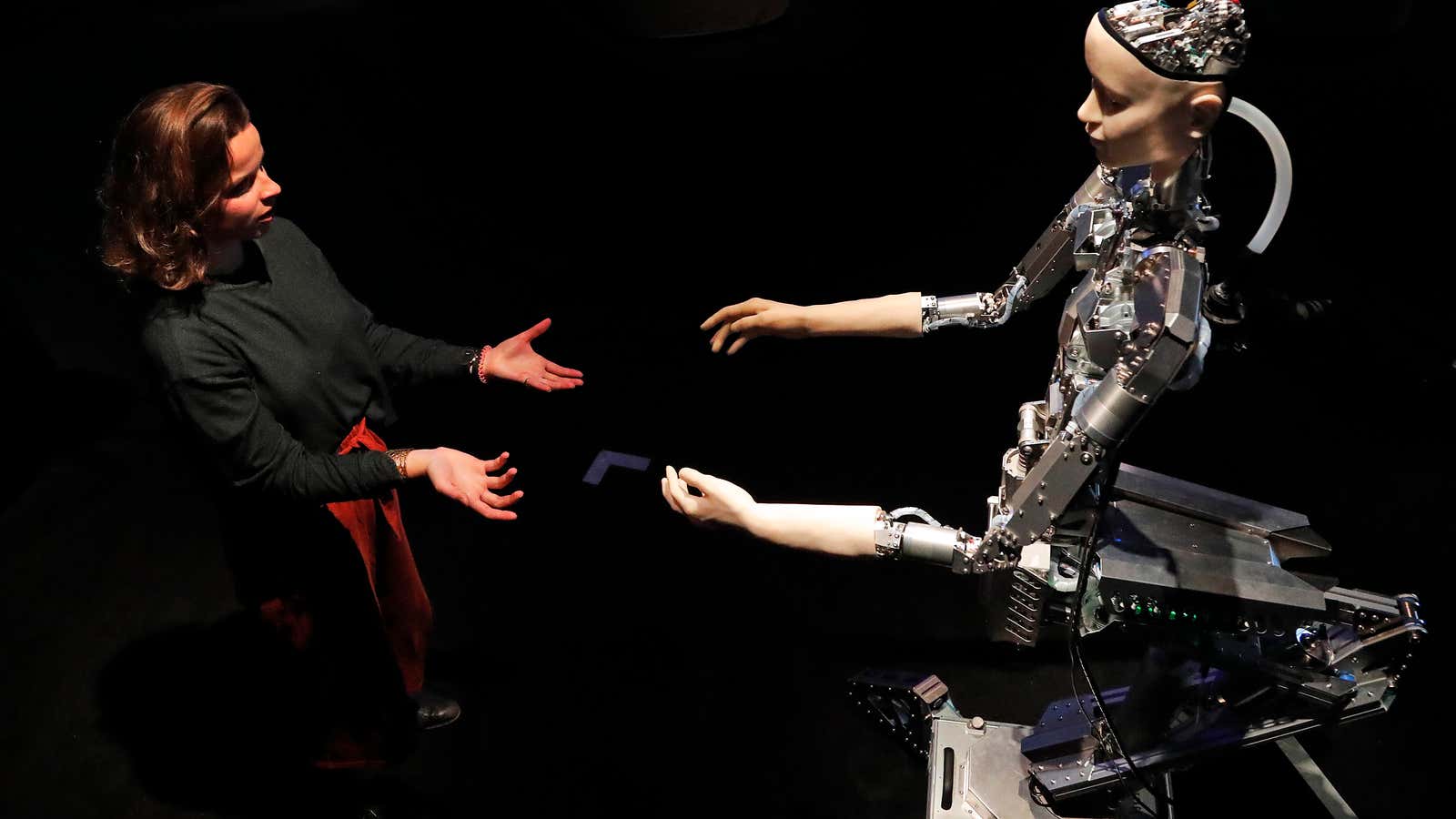There’s no denying the pandemic accelerated the fourth industrial revolution, a concept coined by professor Klaus Schwab at the World Economic Forum five years ago to describe the vast digital transition that is fundamentally changing our lives. But the breadth of the tech transition Schwab predicted in 2016 seemed far-off to most at the time. Now, with a post-Covid era in our sights, we’ve learned how viable remote school and work is, we’ve seen the most archaic institutions embrace the change, and we’ve at long last witnessed the adoption of digital healthcare.
There’s no going back. Accept it, and then enjoy it.
We’ve officially entered an era in which new technologies fuse the physical, digital, and biological worlds. Advancements in artificial intelligence are an integral part of that shift. It was used to test people with Covid symptoms more effectively than some other methods, and it will be deployed in unimaginable ways as the world recovers.
In the United States, where companies are starting to push employees to return to their offices, return-to-work experts are struggling to find consensus on which employees should return to the office, what capacity logistics look like, and whether a hybrid workforce, with a mix of in-person and remote work, is best. But recent advancements in artificial intelligence can sort through those issues efficiently for companies that are using the technology to get their relaunches right.
Combatting common misperceptions about artificial intelligence
Popular vocabulary about the AI revolution often fixates on words like “displacement” and “reskilling,” haunting workers with fear that robots will take their jobs. Anxiety over automation comes down to the belief that machines can execute tasks more efficiently, make complex decisions more effectively, and replace less productive employees—which isn’t wrong. But it is an incomplete picture.
With advancements in conversational AI, it’s possible—desirable, even—for humans and machines to work side-by-side. Just as the invention of the computer enhanced the productivity and efficacy of human work, AI can do the same.
We must reset the narrative before Americans settle back into the newest normal, because the current perception of AI—as an all-knowing technology sapping workplaces of their humanity and destroying jobs in apocalyptic numbers—is only going to cause most workers and the companies they work for to fall behind. A recent Accenture study revealed 75% of organizations would go out of business if they fail to scale AI, making adoption inevitable for survival. So yes, the need is urgent. But as companies add AI to their processes, it will be entirely possible for them to show they can deploy the technology without firing workers and instead push employees into new teams with new skills to follow.
A future with conversational AI
Recent developments in conversational AI feature digital employees who can do all the work that humans don’t want to do but can be trained the way human employees are to carry out the company’s mission. They can learn to comprehend and communicate the way humans do across any channel, including voice, and take action to fulfill the user’s request. Best of all, they can liberate human employees to do more meaningful work, which is why studies estimate US productivity will rise 40% by 2035.
Especially in a post-Covid workplace, after a year fraught with burnout and job churn, it’s quite comforting to think that conversational AI can take on time-consuming tasks—the elements we like the least about our jobs. It frees up time for humans to boost and utilize their unique attributes, such as personality, creativity, or ability to work on a team. It means having more time for humans to make important decisions for many organizations, thanks to machine-led insights doing the groundwork. Meanwhile, hard skills, such as language, typing skills, and computer proficiency, are skills that conversational AI can be easily trained to acquire.
In this industrial revolution, automation won’t take our jobs—rather, it will enhance human work. Whenever you hear that we’re on the path to a jobless future, correct it.
Chetan Dube is the founder and CEO of Amelia, an IPsoft company. He is a former assistant professor at New York University and an expert in autonomics, cognitive computing, and the future impact of a digital workforce.
